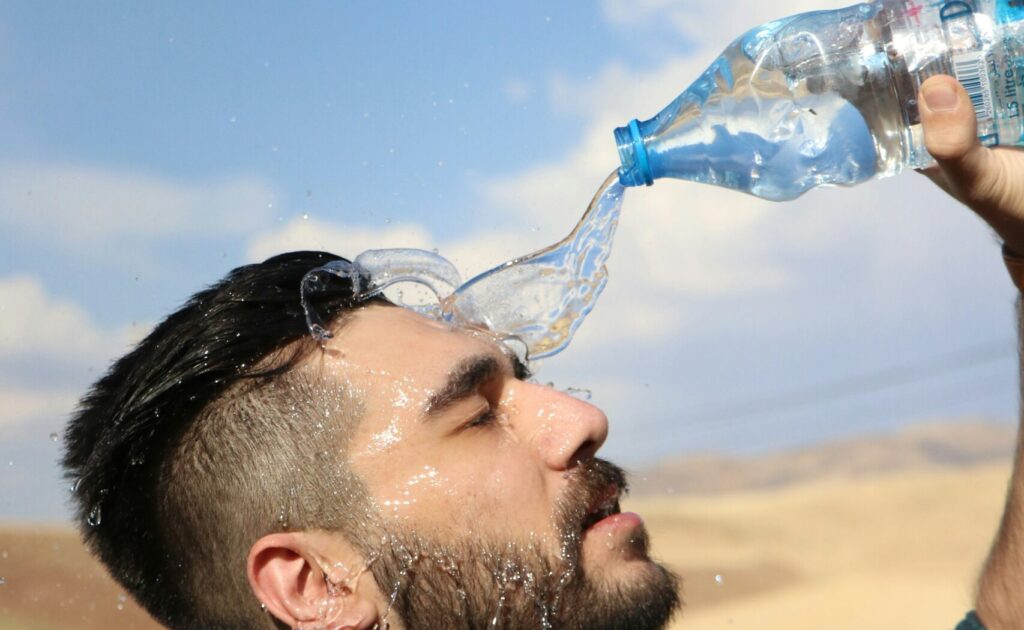Hydration may have been taken for granted before we began running ultramarathons. However, as we up our training and strive for longer distances, we may begin to analyse different aspects of our training to prevent injury and strain. Hydration is one of those factors.
Hydration, or its opposite, dehydration, is a term often used, and we may believe that drinking water is the optimal solution; however, truly understanding our particular hydration needs could significantly impact our overall performance.

What is Dehydration?
Our bodies are made of two-thirds water. Becoming dehydrated means the amount of water in our body has dropped below the level needed for the body to function. This applies to water and electrolytes, which we lose through our sweat during exercise.
Our primary electrolyte is sodium, a salt our body naturally produces alongside potassium and magnesium, which the body rapidly loses through exercise. Replacing these salts to resume both psychological and physiological functions is essential.
Read Now: 2024 Race Season Preview
Signs of Dehydration:
Signs you may be dehydrated while running include:
- Tiredness
- Dark urine
- Brain fog
- Headache
- Cramp
- Easy runs feel hard
Why do we take electrolytes during ultramarathons?
Fluids and electrolytes are usually offered at checkpoints throughout a race and recommended for several reasons:
Support the whole team who put all this together
This is premium stuff! Subscribe for ONLY 99p for ALL online content!
Subscribe
Get right to the heart of ultra-running featuring interviews and podcasts with world class athletes, extraordinary race directors, ultra-running coaches, nutritional experts and in depth race reviews from around the globe!Get your access now
